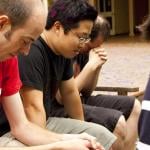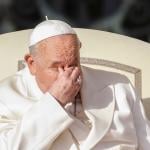Why did James write this book? What is the purpose of this book for us today?
The Author
There is little doubt that James, the half-brother of Jesus, wrote the Book of James. Many consider it to be part of the wisdom literature of the Bible, and rightly it should. James begins the letter by identifying himself as “James, a servant (lit. “slave”) of God and of the Lord Jesus Christ, To the twelve tribes in the Dispersion” (James 1:1). This book may have been the very first book making it the oldest of the New Testament books and was written anywhere from AD 44 to AD 50. This book was written primarily to the Jews who had been dispersed amidst the Roman Empire during a time of intense persecution.
The Purpose
James gave instructions for the Jews who were dispersed or spread abroad and well beyond the Jerusalem church and so he wanted them to stay connected to the body of Christ. James provides biblical methods for praying, having faith, how to suffer, controlling the tongue, what works and salvation have to do with one another (a “dead faith”), doing and not merely hearing, he chastises the rich (James 2:6; 5:1-2), comforts the poor, shows how to acquire wisdom, and what true religion really is (James 1:27). The purpose is manifold in the Book of James because he talks so much about the Christian faith and examining ourselves to see if we’re bearing works worthy of a genuine Christian.
The Focal Point
James central point may have been that people can talk all they want about saying they’re a Christian but if they have no works to show it, then they are only hearers of the law and not doers and that person’s faith is dead. James writes “faith by itself, if it is not accompanied by action, is dead. But someone will say, ‘You have faith; I have deeds.’ Show me your faith without deeds, and I will show you my faith by what I do” (James 2:17-18). If there are no deeds or good works that come as a result of faith, then that is not real faith. It is dead on arrival. If you believe in God, James says so what! You’ve just qualified to be a demon because even they believe in God and shudder with fear (James 2:19).
The Tongue
Talk about one of the most difficult members of the human body to control! The tongue wins the prize for being the most unruly, unwholesome, filthy, degrading, and destructive of all physical members of the body (James 3:6). James compares the tongue to a tiny rudder directing a huge ship and shows how much damage this little member can bring (James 1:3) and “How great a forest is set ablaze by such a small fire” (James 3:5)! We’ve managed to tame about everything else in nature, including some very large mammals and animals, “but no human being can tame the tongue. It is a restless evil, full of deadly poison” (James 3:8) and with it we both bless and curse people (James 3:10) knowing full well that they are made in the image of God (Gen 1:27; James 3:9).
Sufferings is never Wasted
James wrote this letter in a time of great sorrow for the Jewish Christians. It was bad enough being a Jew but a Jewish Christian? That really ramped up the persecution. Many lost jobs, homes, families, possessions, and many lost their lives. Those who managed to survive were driven out into other parts of the empire but with them they brought the only hope for humanity in Jesus Christ (Acts 4:12). James wanted these suffering servants of Christ to know their suffering’s not going to waste. Ironically, suffering from want brings a lack for nothing as he wrote “that the testing of your faith produces steadfastness. And let steadfastness have its full effect, that you may be perfect and complete, lacking in nothing” (James 1:3-4). Suffering leads to sufficiency, even if only in Christ. Blessed is that one “who remains steadfast under trial, for when he has stood the test he will receive the crown of life, which God has promised to those who love him” (James 1:12).
Conclusion
I also believe James identifies what true religion is and it’s found in James 1:27 where he writes “Religion that is pure and undefiled before God, the Father, is this: to visit orphans and widows in their affliction, and to keep oneself unstained from the world.” Visiting the orphans and widows would be considered the sort of works that James wrote about that would be produced as a result of having genuine, saving faith. These kinds of works would be evident and if not, there there’s evidently no saving faith in the first place. Visiting orphans and widows could be single parent’s children, those in prison, those in homeless shelters, men and women in the nursing home and who happen to be nearly all orphans and in a nursing home a great majority of them are widows or widowers. This is the type of religion “that is pure and undefiled before God, the Father” and that’s the only audience that matters. That’s pure religion to James (and to God) but there’s more to it than that. One has to keep oneself unstained from the world and the “world” surely means the sins of the world and living in a sinful lifestyle.
Article by Jack Wellman
Jack Wellman is Pastor of the Mulvane Brethren Church in Mulvane Kansas. Jack is also the Senior Writer at What Christians Want To Know whose mission is to equip, encourage, and energize Christians and to address questions about the believer’s daily walk with God and the Bible. You can follow Jack on Google Plus or check out his book Teaching Children the Gospel available on Amazon.
















